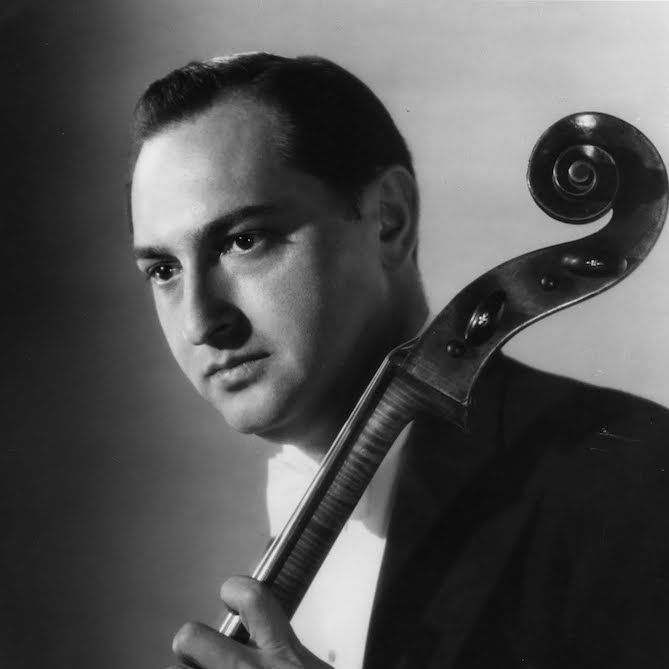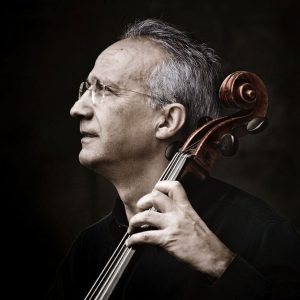
Thanks Bernie, You Saved My Cello Life!
Lluis Claret
I met Bernard Greenhouse for the first time at the First World Cello Congress in Washington D.C. in 1988. I invited him for the following year to give master classes at the school in Barcelona, knowing of his enormous international reputation. He told me that it was a great pleasure to come to the city where his grand maître Pablo Casals had lived, taught and played so many times. I could not imagine then in what ways and to what extent our association would change my life as a musician! His teaching was as much a confirmation of the lessons I had learned from Enric Casals and Radu Aldulscu as a revolution on how to get the best out of each pupil.
First and foremost I would like to point out his constant generosity. Every moment of a class with Bernard Greenhouse exudes his love of the violoncello and music. All his undying energy is directed to motivating the pupil, to shaking him to his deepest core so that he dares to give the best of himself. All this is built upon an intimate knowledge of the instrument, which is even more impressive because his technique is the most natural that I have ever encountered. Because of that ease, it has allowed him to retain, after eighty years, a control of the instrument that would stir up envy among younger colleagues.

For Bernard Greenhouse it is the music that must have the principal role on the stage. How many times does he ask in each passage that the left hand “feels,” “speaks, and “expresses” a phrase? I think that it is one of his greatest assets. To have an “expressive” left hand one must rigorously train each finger to work independently and use the arm and pack muscles in the activity of the left hand. All this helps to contribute to the relaxation of the hand and allows it to be more expressive. He also forcefully demands that one uses as many colors as possible, by the change of the vibrato, the speed of the bow and accentuation, but always with respect to the text and not, as one hears so often, to impress the public. It is the depth of his musical discourse that impresses me. I followed his advice to my great benefit and to that of my students. I can thus now say that Bernard Greenhouse has given me the pleasure to play the instrument and the joy to express music in a way that I did not know before I met him. Even though I did not perform in any of his numerous master classes in New York, Boston, and other cities, I proudly declare myself his “adopted” student. In the hundreds of hours of lessons that I happily attended (especially the Stage International de Violoncelle de Cuixa that I had the honor to share with him) I used the opportunity to ask his advice.
Thank you Bernie for your overflowing humanity. Your music and energy replenishes us, inspires us, and warms our hearts.
Translated from French by Chantal Berman and Laurinel Owen.
Excerpted from:
Laurinel Owen Bowed Arts: Reflections of Bernard Greenhouse on his life and music.
Published in 2001 by the Kronenburg Academy
Buy the full book here.
Subjects: Artists
